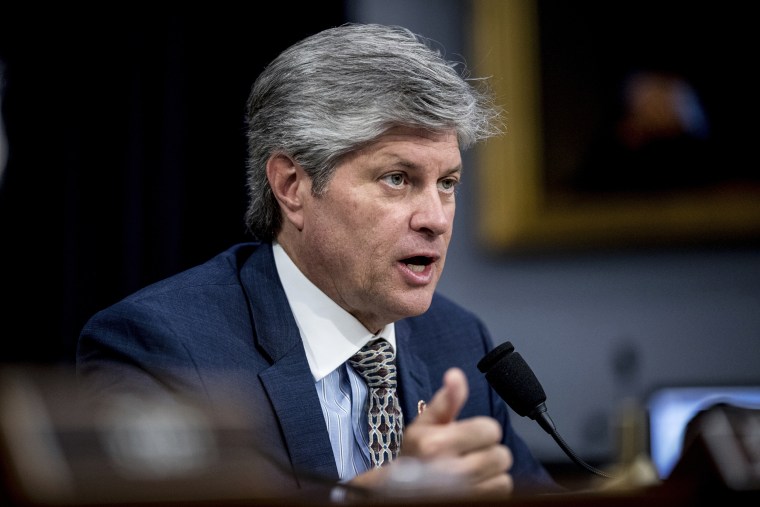Dozens of members of Congress have already announced plans to retire at the end of the current Congress, but as the Lincoln Journal Star reported, Nebraska's Jeff Fortenberry won't be one of them.
U.S. Rep. Jeff Fortenberry announced Monday that he will seek a 10th term representing Nebraska's 1st District in Congress this year, despite his legal troubles. The Lincoln Republican shot his announcement video in the cab of his 1963 Ford 100 pickup, with his wife, Celeste, and dog, Pippin, next to him.
If the announcement video seemed at all familiar, there's a good reason: A few months ago, the GOP congressman also sat in his pickup, alongside his wife, and filmed a similar clip in which Fortenberry said he expected to be indicted by federal prosecutors for lying to the FBI.
And sure enough, criminal charges soon followed.
The Nebraskan has decided to run for re-election anyway, which is notable in its own right. Traditionally, members of Congress facing serious legal difficulties like these would focus less on campaigning and more on their legal defense. It is, after all, challenging for an incumbent politician to effectively tell voters, "Vote for me — and pay no attention to those pesky felony charges pending against me."
But Fortenberry is apparently working from the assumption that voters in his red state won't much care about the criminal charges he's facing, and he's probably right.
Consider recent history. In 2018, Republican Rep. Chris Collins of New York faced a federal criminal indictment. The congressman initially tried to back out of his re-election campaign, then reversed course, then narrowly won anyway. The same year, Republican Rep. Duncan Hunter of California also faced multiple federal charges, also ran for re-election, and was also rewarded by his constituents with another term.
Both were ultimately sentenced to prison, and both received presidential pardons from Donald Trump, who was unusually supportive of political corruption. But the larger point remains the same: These Republicans' constituents didn't much mind that their representative was under criminal indictment.
Fortenberry probably assumes that the voters of Nebraska's 1st congressional district will vote for him anyway, and if I were in his shoes, I'd probably assume the same thing.
As for the nature of the legal controversy, for those who may need a refresher, the case stems from an FBI investigation into illegal campaign contributions from Gilbert Chagoury, a Nigerian billionaire of Lebanese descent. His donations were reportedly funneled through a group of Californians from 2012 through 2016, and went to several politicians, including Fortenberry.
Members of Congress cannot, of course, accept foreign funds for their campaigns, but in this case, that's not the principal problem: The Nebraskan and his team have said they didn't realize the $30,200 in contributions he received at a Los Angeles fundraiser in 2016 came from a Nigerian billionaire. The congressman later donated the money to local charities.
Rather, according to federal prosecutors, Fortenberry "repeatedly lied to and misled authorities" as part of the investigation into Chagoury's scheme.
The Justice Department's statement on the charges also pointed to an alleged scheme "in which Fortenberry, after learning this information, 'knowingly and willfully falsified, concealed, and covered up by trick, scheme, and device material facts' about the illegal campaign contributions."
Last week, the congressman's lawyers filed motions to have the case dismissed. A federal judge rejected the effort, making it more likely that the Nebraska Republican will have to stand trial.

